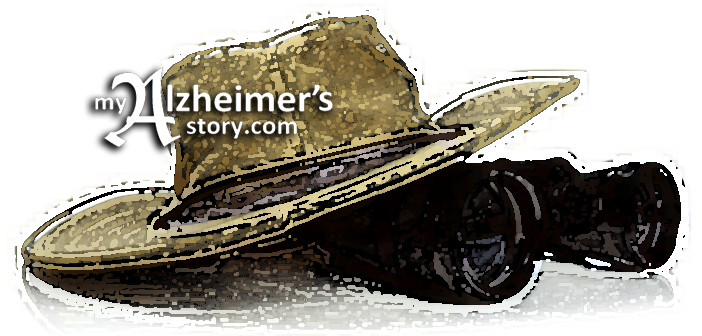
No, it’s not a typo. The headline does indeed read Asperger Syndrome and not Alzheimer Disease. And no, the focus of this blog is not changing — this post is a bit of an anomaly.
Lilly*, one of the first and most loyal followers of MyAlzheimersStory.com is an “Aspie.” When I recently befriended someone who, like Lilly, was diagnosed with autism spectrum disorder (ASD or Asperger’s syndrome) later in life (i.e. in his forties), I wanted to know more about the condition so I could be as supportive of my new friend as possible. Understanding is key to communication, and, as we had been collaborating on a project, I felt the more I knew about being an Aspie, the better I would be able to engage him, and the more successful our work together would be. Sadly, the project will now never see the light of day.
Remarkably, as I dug into the information, I recognized the signs of high-functioning ASD in myself, and realized I might easily be considered on the edge of the high functioning end of the spectrum.
When I shared this with Lilly on Messenger, she quickly replied:
“I too believe you could be, you have many high-functioning characteristics, and you troubleshoot with different skill set than “non neurodiverse”, from my observation over the past few years.”
I began my research by revisiting Temple Grandin‘s TED201O talk The World Needs All Kind of Minds, which I had found fascinating when it was first released, and which delivered additional insights on second viewing. Grandin lives with autism, has a doctorate, and is one of the top scientists in the humane livestock handling industry; a highly rated 2010 movie about her life, starring Clare Danes, won a Golden Globe award. She is also the co-author of this groundbreaking book: The Autistic Brain: Thinking Across the Spectrum.
Here is her 2010 TED talk:
This short CNN piece combines live interview with clips from the movie:
I found one of the best “basics” articles on the Autism Speaks Canada website. The article points out that “Asperger syndrome often remains undiagnosed until a child or adult begins to have serious difficulties in school, the workplace or their personal lives. Diagnosis tends to center primarily on difficulties with social interactions.” Other information I found suggests marital issues are frequently among the diagnosis drivers. This excellent Psychology Today article outlines a number of specific, practical strategies that may help get and/or keep a marriage with an Aspie on track. This one in particular struck me:
“Understanding that [Asperger Syndrome] is a biologically-based, neurological difference vs. a psychological mental disorder is key. Learning about [Asperger Syndrome] is important to sort through what challenges are [Asperger Syndrome] based and what are just regular marriage issues. Books, movies, articles, and seminars can help the both partners better understand [Asperger]. Due to its complex nature, learning about [Asperger Syndrome] is lifelong.”
I also found this wonderful video:
There’s a great article on Asperger and creativity here, and another interesting TED talk called Asperger’s: Not Being Afraid Anymore here, and one on meds here. More on girls with autism spectrum disorder here.
People with Alzheimer Disease are often stigmatized and seen as “less than” or deficient in some way. I wrote a poem to help change that mindset. Aspies are similarly stigmatized, and often told there’s something “wrong” with them. There’s nothing wrong with people who are different. They are simply different. So I also wrote a poem about what it might be like for an Aspie to be labeled and stigmatized, from an Aspie perspective. Not surprisingly, I seem to have a pretty good grip on that.
Doing this research was helpful and enlightening for me. I hope it is for you too.
*Not her real name.
http://amazingsusan.com/2018/12/23/see-the-me-thats-me/
https://myalzheimersstory.com/2016/07/24/let-me-shine-a-dementia-rhyme-to-open-minds/
#mc_embed_signup{background:#fff; clear:left; font:14px Helvetica,Arial,sans-serif; }
/* Add your own MailChimp form style overrides in your site stylesheet or in this style block.
We recommend moving this block and the preceding CSS link to the HEAD of your HTML file. */





